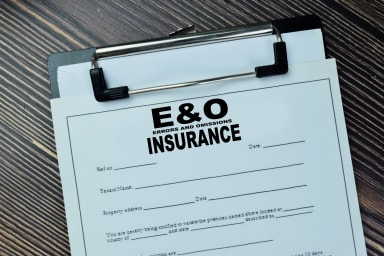The Many Insurance Options When You Are Self-Employed
When you own a small business, the array of potential insurance products can be overwhelming. Which types of insurance are really important? Here are the options:
Health: For the self-employed, choosing the right plan is often a matter of weighing how much you can afford against the sort of coverage you want. And if you have employees, just know that they typically rank health insurance as among the most important of benefits.
Business Owner: Business owner insurance is also known as catchall coverage. It is a basic policy that provides protection from fire, other mishaps, and some liabilities.
Property and Casualty: Just as you insure your house against property loss, so too must you insure your business for the same. Property insurance protects your business against physical damage or loss of business assets. It is used when troubles such as fire, theft, explosion, or vandalism damage or destroy your equipment, inventory, or building.
How much should you expect to pay for property insurance? It depends on your claims history, the insurer, what you want to insure, the type of structure, whether you have any protective safety measures, and the location of your property. As with the rest of your insurance needs, you need to shop around, as rates can vary widely.
Liability: Also known as comprehensive general liability, or CGL insurance, this type of policy has two functions. First, if someone is injured because of your negligence or the negligence of one of your employees, the policy pays the claim. Second, if you are sued for damages related to the policy, the policy will pay the cost of your attorney. Needless to say, in this litigious society of ours, liability insurance is almost a must.
Errors and Omissions: Called E and O insurance, errors and omissions coverage is for service businesses, offering protection if you neglect to do something and thereby cause a customer or client damage. For example, a physician’s medical malpractice insurance is a type of E and O coverage.
Business Interruption: Business interruption insurance (BII) is designed to cover the loss of income if normal business operations are disrupted by damage caused by a fire, flood, or other disaster. BII is intended to cover loss of income directly related to the loss of physical property. Thus, if your location is vital to your ability to make money, then business interruption insurance is important. A service business probably does not need BII, as services can be performed most anywhere, but a factory would definitely need business interruption insurance.
Keyman: As the name indicates, this sort of policy insures your business against the death of a key employee.
Auto: If your business makes deliveries or if you have a company car, then sufficient auto insurance is a must. Although you may be tempted to purchase the minimum coverage required by your state, that is not enough—the point of insurance is to protect your business.
Life: Why are you in business for yourself? Surely, one reason is that you want to create financial stability for your family. What if something happens to you—what will become of your dream then? Without adequate life insurance, it probably will turn into a nightmare. Beyond that, many banks require that the owner of the business have life insurance before they will loan the business money.
When shopping for life insurance, you will be faced with a decision: term or whole life policy? Buying a whole life policy is like buying a house: as you pay the premium, you build equity in the policy. Buying a term policy is like renting: it is cheaper, but you build no equity. In this case, renting is probably better than buying, as rates for term life insurance are amazingly affordable. Even though you will not be building equity, the money you save is usually better spent in other areas of your business.
Team ZenBusiness
Disclaimer: The content on this page is for information purposes only and does not constitute legal, tax, or accounting advice. If you have specific questions about any of these topics, seek the counsel of a licensed professional.
Insurance Resources




